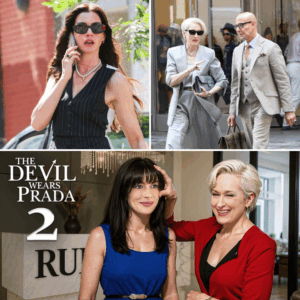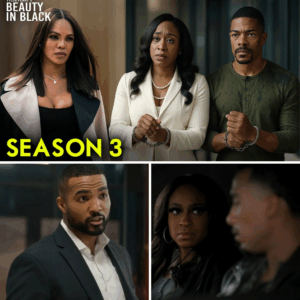In a courtroom drama that continues to reverberate through the corridors of power in Hollywood and beyond, disgraced film producer Harvey Weinstein, once the undisputed kingmaker of Tinseltown, returned to Manhattan Criminal Court today for the opening arguments in his third sexual assault trial. At 73, wheelchair-bound and a shadow of the bombastic figure who greenlit Oscar darlings like Shakespeare in Love and Chicago, Weinstein faces fresh scrutiny over allegations of raping aspiring actress Jessica Mann in 2013—a charge that ended in a mistrial during his June retrial but has been revived by determined prosecutors. This latest chapter in the saga that ignited the #MeToo movement underscores the relentless pursuit of accountability, even as Weinstein’s defense team decries a “witch hunt” fueled by media frenzy and celebrity vendettas.
The trial, which began with jury selection in April 2025 and is expected to span six weeks, revives the raw testimonies of three women whose stories first unraveled Weinstein’s empire in 2017. Mann, a former yoga instructor and actress whose dreams of stardom collided with Weinstein’s predatory advances, takes center stage. Her account of being lured to a Beverly Hills hotel suite under false pretenses of career advice, only to be raped by a man who allegedly injected himself with erection medication, has been described by legal experts as “devastatingly credible.” Joined by former production assistant Miriam “Mimi” Haley, who secured a conviction against Weinstein in the same retrial for a 2006 assault, and Polish model Kaja Sokola, whose 2006 allegation resulted in an acquittal, the women’s voices echo the chorus of over 100 accusers who have come forward since the scandal broke.
Weinstein, dressed in a ill-fitting navy suit and flanked by his legal team led by Arthur L. Aidala, pleaded not guilty this morning, his voice raspy but defiant. “This is not justice; it’s revenge,” he muttered to reporters outside the courthouse, where a phalanx of protesters waved signs reading “Believe Women” and “No More Silence.” As the gavel fell, the weight of history pressed down: This is Weinstein’s third New York trial in five years, following a landmark 2020 conviction overturned on appeal in 2024 for procedural errors, and a split verdict in June 2025 that left Mann’s rape charge unresolved. With a separate 16-year sentence hanging over him from a 2022 Los Angeles conviction—currently under appeal—Weinstein’s freedom hangs by a thread, a stark fall from the heights of Miramax glory.
The Rise and Fall: From Oscar Gold to Courtroom Chains
To understand the gravity of today’s proceedings, one must rewind to the glittering facade of Harvey Weinstein’s empire. Born in 1952 in Queens, New York, to a diamond cutter father and homemaker mother, Weinstein and his brother Bob co-founded Miramax in 1979 with a $1,000 loan. What began as a scrappy distributor of indie films like Sex, Lies, and Videotape exploded into a powerhouse, securing 310 Academy Award nominations and 60 wins. Weinstein was the maestro: schmoozing at Cannes, bullying critics, and turning unknowns like Quentin Tarantino into auteurs. His parties were legendary—caviar-fueled bacchanals where deals were sealed with whispers and winks. By the 2000s, with The Weinstein Company, he was Hollywood’s ultimate gatekeeper, a man whose Rolodex could make or break careers.
But beneath the schmooze lurked a darker pattern, one that dozens of women would later expose. Rumors of harassment swirled for decades—whispers at the Golden Globes, punchlines in 30 Rock—but it took the courage of actresses like Ashley Judd and Rose McGowan to shatter the silence. On October 5, 2017, The New York Times published a bombshell exposé detailing settlements with eight women, including Judd’s allegation of being propositioned in a hotel in 1997. Days later, The New Yorker followed with accounts from 13 more, including McGowan’s claim of rape in 1997. The floodgates opened: Gwyneth Paltrow revealed Weinstein’s advances during Emma‘s production; Angelina Jolie spoke of an unwanted encounter in the 1990s; Mira Sorvino described being cornered and harassed.
The #MeToo tsunami that followed was seismic. Tarana Burke’s phrase, coined in 2006, went viral, toppling figures from Matt Lauer to Kevin Spacey. Weinstein, the poster child, was ousted from his company in October 2017, expelled from the Academy, and arrested in May 2018. His 2020 New York trial, a media circus with Annabella Sciorra’s testimony as a linchpin, ended in a guilty verdict on rape and sexual assault charges, earning him 23 years. But in April 2024, New York’s Court of Appeals overturned it, ruling that testimony from non-victim “prior bad acts” witnesses prejudiced the jury. Prosecutors, undaunted, reindicted him in September 2024 on charges involving Haley, Mann, and newcomer Sokola.
The Los Angeles trial in 2021-2022 added layers: Convicted of raping one woman (Evgeniya Chernyshova) and assaulting two others (Miramax assistant “Jane Doe 1” and Jennifer Siebel Newsom, wife of California Gov. Gavin Newsom), Weinstein drew 16 years, to be served consecutively. Appeals drag on, but today’s New York focus is Mann’s unresolved claim—a mistrial in June after jurors deadlocked, with one holdout citing “insufficient evidence” amid heated deliberations.
The Accusers: Voices That Shattered the Silence
At the heart of this retrial are three women whose testimonies blend vulnerability with unyielding resolve, painting Weinstein not as a flawed genius but as a serial predator who weaponized his influence.
Jessica Mann, 42, was a wide-eyed aspiring actress from rural Pennsylvania when she met Weinstein in 2012 on the set of The Newsroom. “He seemed like a father figure at first—encouraging, powerful,” she testified in the original trial, her voice steady but eyes haunted. Mann alleged that after a consensual encounter, Weinstein’s demeanor shifted. On March 18, 2013, at the DoubleTree Hotel in Los Angeles, he allegedly locked the door, demanded sex, and raped her despite protests. “He was enormous, suffocating,” she described graphically, detailing how he ignored her pleas and later pressured her into further “meetings” with threats to her career. Mann’s cross-examination in 2020 was brutal—defense attorney Donna Rotunno grilled her on emails calling Weinstein a “friend,” implying consent. “I was gaslit, manipulated,” Mann retorted, explaining the psychological toll of trauma.
In the June retrial, Mann’s testimony was even more poignant, bolstered by therapy records and emails showing her distress. The mistrial stemmed from a juror’s bias, revealed in notes: “Prior relationships muddy the waters.” Sokola’s acquittal—despite her harrowing account of being assaulted at 19 in a hotel suite—stung, but Haley’s conviction (forcible oral sex in his Tribeca apartment in July 2006) offered vindication. Haley, now 48 and a director, wept after the verdict: “This is for every woman who stayed silent.”
Kaja Sokola, 41, a former model from Warsaw, brought a fresh allegation: In 2006, at 19, Weinstein allegedly cornered her in a Manhattan hotel bathroom during a “meeting,” groping and attempting oral sex. “I froze, like a deer in headlights,” she said, her accent thick with emotion. Acquitted in June, Sokola addressed reporters today: “Truth isn’t always a win in court, but it’s a win for survivors.” Her inclusion, unsealed in April 2025, expanded the indictment, testing New York’s “prior bad acts” rules post-appeal.
These women, supported by Time’s Up and RAINN, represent a sisterhood forged in fire. Their stories—lured with script readings, assaulted in suites, silenced by NDAs—exposed Hollywood’s “casting couch” as systemic abuse. As Mann told The New York Times post-mistrial, “This isn’t about me anymore; it’s about the next girl.”
The Trial Unfolds: Arguments, Evidence, and Emotional Crossfire
Today’s opening salvos set a tense tone. Prosecutor Emily Johnson, from DA Alvin Bragg’s office, painted Weinstein as a “monster in a producer’s suit,” using PowerPoint slides of hotel logs, emails, and medical reports to corroborate the assaults. “He didn’t just take their bodies; he stole their futures,” she thundered, emphasizing Mann’s rape as the culmination of a pattern. The defense, led by Aidala, countered with a narrative of “consensual ambition”: “These were transactional Hollywood romances, not crimes,” he argued, citing Mann’s prior encounters and lack of immediate reports. Weinstein, silent on the stand as in prior trials, relies on character witnesses like former assistants attesting to his “eccentric but not evil” ways.
Evidence includes graphic forensics: DNA from Haley’s 2006 assault, hotel keycards timestamped to Mann’s 2013 ordeal, and Sokola’s contemporaneous texts to friends (“HW is a creep—grabbed me”). Prosecutors will call 20 witnesses, including psychologist Dawn Hughes on trauma responses—why victims delay reporting—and celebrities like Judd for context. The defense plans rebuttals: Friends of Mann claiming she “bragged” about Weinstein’s attention, aiming to portray accusers as opportunistic.
Judge Curtis Farber, presiding since 2020, has tightened rules post-appeal, limiting “me too” testimonies to direct relevance. Jury deliberations could echo June’s deadlock, with a diverse panel (seven women, five men) instructed on consent’s nuances. Weinstein, health frail—diabetes, heart issues—appears via wheelchair, a visual of fallen might.
Legal Labyrinth: Appeals, Sentences, and the Shadow of #MeToo
Weinstein’s legal odyssey is a procedural thriller. The 2020 overturn hinged on evidentiary overreach; the June split—guilty on Haley (5-25 years), not guilty on Sokola, mistrial on Mann—prompted Bragg’s retrial push. Farber declared today: “We seek closure for justice.” Sentencing on the Haley conviction looms post-trial, potentially adding to his 39-year total (NY + CA), though appeals may delay prison.
The LA conviction, appealed on similar grounds, involves four women; a hearing is set for October 2025. Civil suits—over $20 million in settlements—continue, with the New York AG suing Weinstein Co. for misleading banks. His brother Bob, co-accused, settled for $19 million in 2020.
#MeToo’s legacy looms large. Sparked by Weinstein, it led to 200+ high-profile firings and laws like New York’s 2019 Adult Survivors Act, extending statutes for old claims. Yet critics decry backsliding: Reduced funding for victim services, rising harassment reports. As Tarana Burke tweeted today: “Weinstein’s trial reminds us: Justice is marathon, not sprint.”
Voices from the Vanguard: Hollywood’s Reckoning
Survivors and allies rallied outside court. Annabella Sciorra, whose 1990s rape allegation was pivotal in 2020, told reporters: “Jessica’s fight is ours—Weinstein’s power was illusion; our truth is eternal.” Judd, elegant in protest black, added: “This trial exposes the machine that protected him.” Male allies like Judd Apatow and Judd’s This Is Us co-star Milo Ventimiglia voiced support, signaling cultural shifts.
Weinstein’s camp pushes back. Spokesperson Juda Engelmayer called the retrial “vindictive,” citing juror bias claims from June. Family—ex-wife Georgina Chapman, children—remain divided; some visited him in Bellevue Hospital post-arrest.
Experts weigh in: NYU law prof Rachel Barkow notes, “This tests #MeToo’s staying power amid conservative judicial trends.” Victim advocate Tarana Burke warns of “compassion fatigue,” urging sustained advocacy.
Legacy’s Long Shadow: A Movement’s Enduring Flame
As Weinstein’s trial grinds on, its ripples touch every corner of culture. Miramax’s sale, TWC’s bankruptcy, and reforms like the Academy’s inclusion standards trace back to 2017. Yet challenges persist: Only 1% of assaults lead to conviction, per RAINN. Mann’s case, if won, could set precedents on delayed reporting.
For Jessica Mann, it’s personal redemption. “I came for justice, stayed for healing,” she said in a victim impact statement. Weinstein, once untouchable, now embodies accountability’s bite.
This trial isn’t just about one man; it’s a referendum on power’s abuse. As the gavel echoes, one truth endures: The women who spoke first ensured no one falls silent again.





